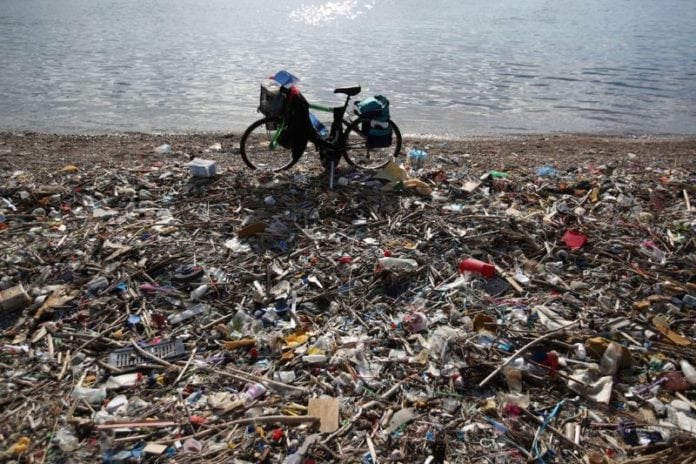EU Rules to Ban Single-Use Plastics for Marine Litter Reduction
With the already staggering amount of damaging plastic litter in seas and oceans on the rise further, the European Commission is suggesting new EU-wide principles to aim the 10 single-use plastic goods most frequently located on Europe’s shores and seas, in addition to lost and abandoned fishing equipment.
Together these constitute 70 percent of marine litter. This implies different steps will be implemented to various goods. Where choices are easily available and cheap, single-use plastic goods will be prohibited from the market.
For goods without straight-forward options, the focus is on restricting their usage through a nationwide decrease in consumption; layout and labelling needs and squander management/clean-up duties for manufacturers. Collectively, the new rules will place Europe before the curve on a problem with international consequences.
The European Commission on Monday proposed an ambitious group of steps to clean up Europe’s shores and cleared its slopes and seas of
disposable plastics, also encouraged that the European Union to lead the way in reducing marine litter globally.The steps, which will have to be accepted by the European Union’s 28 member countries, would decrease or change the intake and creation of the top 10 plastic things most commonly seen on beaches, such as straws, cotton swabs, disposable cutlery and fishing equipment.
First Vice-President Frans Timmermans, responsible for sustainable development said: “This Commission promised to be big on the big issues and leave the rest to Member States. Plastic waste is undeniably a big issue and Europeans need to act together to tackle this problem, because plastic waste ends up in our air, our soil, our oceans, and in our food. Today’s proposals will reduce single use plastics on our supermarket shelves through a range of measures. We will ban some of these items, and substitute them with cleaner alternatives so people can still use their favourite products.”
Vice-President Jyrki Katainen, responsible for jobs, growth, investment and competitiveness, added: “Plastic can be fantastic, but we need to use it more responsibly. Single use plastics are not a smart economic or environmental choice, and today’s proposals will help business and consumers to move towards sustainable alternatives. This is an opportunity for Europe to lead the way, creating products that the world will demand for decades to come, and extracting more economic value from our precious and limited resources. Our collection target for plastic bottles will also help to generate the necessary volumes for a thriving plastic recycling industry.”
The proposal also has a significant drive for more intelligent use of plastic fishing equipment like nets, traps and lines. The EU says just 1.5 percent of it is recycled and it accounts for 27% of beach litter. Under the rules, fishers will have new tools and incentives to recover the waste, while manufacturers of the equipment is going to be forced to pay for waste collection out of interface facilities and awareness-raising steps.
If those principles are executed, the EU states they’d negate the emission of 3.4 million tonnes of C02 equal, avert $22 billion (US$25 billion) in ecological harms by 2030 and save customers an estimated $6.5 billion (US$7.5 billion).






























